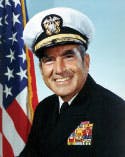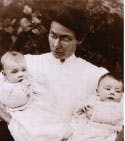ASH’s SAS specializes in one-on-one and small group discussions
The American Society of Hematology (ASH) hosts its
seventh state-of-the-art symposium (SAS) on “Recent Advances in
Hematologic Malignancies and Platelet Disorders” from Sept. 11-12, 2009,
at the Hilton Chicago. The 2009 SAS program will focus on the latest
research and treatment options for hematologic malignancies and platelet
disorders.
Attendance is limited, allowing for ample one-on-one
and small-group discussion time with expert speakers and colleagues. Ask
ASH’s distinguished speakers about new treatment approaches, solutions
for day-to-day cases, or diagnosis and management of malignant and
non-malignant blood disorders. Participate in clinically focused updates
on these important issues and the latest developments in the hematology field.
This meeting is presented in partnership with the
Illinois Medical Oncology Society, Indiana Medical Oncology Society,
Iowa Oncology Society, Michigan Society of Hematology and Oncology, and
the Missouri Cancer Coalition. For registration and housing information,
go to https://store.hematology.org.
Adm. Zumwalt’s legacy for son
Be The Match Foundation is the new name of The Marrow
Foundation. Its visionary founder was Adm. Elmo Russell Zumwalt, Jr.,
the U.S. Navy’s youngest four-star admiral and later Chief of Naval
Operations. When his eldest son, Elmo, required a bone marrow transplant
to treat lymphoma, Adm. Zumwalt recognized the significant financial
struggle of patients being served by the National Marrow Donor Program
(NMDP). After Elmo passed away, Adm. Zumwalt and his wife, Mouza,
created The Marrow Foundation. The organization’s work with families,
corporations, and other partners has raised millions of dollars for
patients with leukemia and other life-threatening diseases who depend on
the Be The Match Foundation to support the work of the NMDP.
Visit www.marrow.org for more information.
Placenta stem cells offer new hope for curing chronic blood disorders
Children’s Hospital & Research Center Oakland is
Northern California’s only freestanding and independent children’s
hospital. Primary research funding comes from the National Institutes of
Health. The institute is a leader in translational research, bench
discoveries to bedside applications, developing new vaccines for
infectious diseases and discovering new treatment protocols for
previously fatal or debilitating conditions such as cancers, sickle cell
disease, thalassemia, diabetes, asthma, HIV/AIDS, pediatric obesity,
nutritional deficiencies, birth defects, hemophilia, and cystic
fibrosis.
The hospital reported a groundbreaking study revealing a
new avenue for harvesting stem cells from a woman’s placenta or, more
specifically, the discarded placentas of healthy newborns. The study also
found there are more stem cells in placentas than in umbilical cord blood,
which can be safely extracted for transplantation. The scientists conjecture
that it is highly likely that placental stem cells can be used to cure many
chronic blood-related disorders.
The study, led by Frans Kuypers, PhD, and Vladimir
Serikov, PhD, will appear in this month’s issue of Experimental Biology and Medicine.
Stem cells are essentially blank cells that can be
transformed into any type of cell (e.g., a muscle cell, brain cell, or
red blood cell). Using stem cells from umbilical cord blood, Children’s
Hospital Oakland physicians have cured more than 100 children with
chronic blood-related diseases through their sibling donor cord blood
transplantation program, which began in 1997.
Placentas contain several times more stem cells than
umbilical cord blood. Researchers say the greater supply of stem cells
in placentas will likely increase the chance that a human leukocyte
antigen, or HLA, matched unit of stem cells engrafts, making stem cell
transplants available to more people, and more stem cells offer a
greater chance of success. Learn more at
www.childrenshospitaloakland.org.
Louise Townsend is a
Florida-based writer who formerly specialized in legislative issues for
a major Washington, DC, pharmaceutical association.



